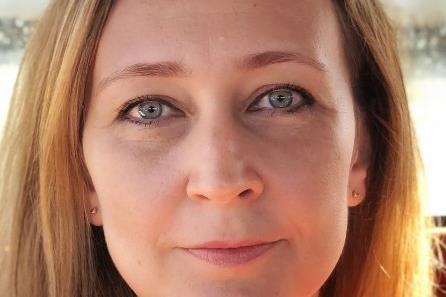
The weakness of the UK pound, which fell to a record low against the US dollar on Monday, is having a detrimental impact on many UK sales and distribution companies for whom doing business in sterling, and potentially attending the American Film Market (AFM) has just got more expensive.
“Paying MGs [minimum guarantees] and acquiring product has become 30% more expensive in the last year,” Andy Mayson, co-CEO of Altitude Film Entertainment, of what has been a months-long slump. “That is obviously a massive negative for distribution.”
“If it is anything more than a short-term trend, [UK] distribution companies will have a difficult time,” agreed Phil Hunt, founder of film investment company Head Gear Films. “Certainly, for the studios and big streamers coming into the UK, everything has just got 15% cheaper with the US dollar. For everyone who is working in dollars, it is good news. For everybody working in sterling, it is bad news.”
Hunt suggested an upside: “Perhaps the UK distribution companies will focus a little bit more on buying UK movies now? There could be a little change there that will bolster the UK indie sector.”
Complicating matters is the fact many UK sales outfits are part of bigger companies which also have distribution and production arms.
Some are US-owned: both HanWay Films and Curzon are owned by the Cohen Media Group.

Stephen Kelliher, managing director of London-based sales and film financing outfit Bankside Films, Head Gear’s sister company, strikes a wary note.
“The fall in the value of the pound will impact several areas of our industry,” he said. “Acquisitions will become more expensive for UK distributors when they are licensing rights in US dollars, for example. Revenues for sales companies on the other hand will be positively impacted with rights generally being sold in US dollars.”
With the AFM fast approaching in early November, Keliher pointed out the price of attending the AFM this year is going to be considerably higher than normal for UK companies. There is not a UK umbrella stand at the event - another reason why some are quaking at the potential expense of going to Santa Monica.
“I am currently planning the Rome Film festival and the AFM and I would say costs [of attending] are going to be 20% higher,” said Simon Crowe, managing director of SC Films International.
Dollars in
However, some UK sales outfits are also benefitting from the strengthening dollar.
“From an income point of view, we tend to work mainly in dollars and so that could counter-balance the initial extra costs,” said Crowe.
“We negotiate the majority of our deals in US dollars and almost always get paid in the currency of the deal so the situation is at our advantage,” said Caroline Couret-Delègue who runs UK sales outfit, Film Seekers UK (and its French offshoot, Film Seekers France). “[The the downturn in sterling] is pretty positive for us.”
Film Seekers uses a multi-currency account which enables it to bypass bank charges and bank fees.
“We’ve got a dollar account and so all that money comes in in dollars. I am just immediately going to transfer it to our current account and so we are much better off instantly today,” Diane Shorthouse, managing director, head of finance and production, at UK production, sales and distribution outfit, Evolutionary Films, commented on Monday.
“It means payments in dollars, which is what we trade in internationally are worth more. It does mean, though, that UK-based sales agents might struggle to compete in the market if they are acquiring American films because they are going to have to pay more for them,” noted Evolutionary CEO John Adams.

Anna Krupnova, co-managing director of London-based sales outfit REASON8, is equally upbeat.
“Our deals are in US dollars. We stick to dollars and so for us it is not bad at all,” she said. “[The currency slump] is actually beneficial to us. The minimum guarantees and all the sales estimates are set in US dollars. We have a borderless account in which money comes in US dollars. We don’t convert back into sterling.”
Busan impact
However, Charlie Bloye, chief executive of Film Export UK, the trade association for independent UK sales outfits, pointed out that it is not just attending the AFM in Santa Monica which will now be more expensive.
“The market in Busan, their costs are denominated in dollars as well,” he said. “The dollar as an international currency is pretty standard and, yes, if you’ve got something you’ve made in pounds and you’re selling in dollars today, then it’s positive for you but if you’re making something new and you want to buy in American crew or talent, or if a British company wants to make a film in the US, it’s obviously negative.”
Adding to the complex picture is that the Euro has also fallen against the dollar
“The dollar doesn’t really affect us. The Euro does,” said New Wave Films director Robert Beeson, who buys plenty of films from European sellers. “It dropped about 6% or 7% on Friday. It is just something you have to deal with.”
Locations boom
The weak pound makes the UK even better value as an international location for US studios and streamers.
But independent UK producers, already hit by runaway inflation and cost of living increases, are warning that the pressure on skills, facilities and cast will now intensify yet further and that production costs will rocket. With so much US studio and streamer production going on in the UK, it will become tougher and tougher for local independent productions to get a foothold.
“The biggest issue is the availability of crews, the cost of crews and the availability and cost of locations,” said Mayson.
Urgently seeking success
Most agree that what all sectors of the UK independent sector really need most urgently now is some successful films.
“Much more concerning [than the currency fluctuations] is the drop in audiences,” said New Wave’s Beeson. He calculated that for standard arthouse movies, cinema attendance has dropped by between 50% and 70% since 2019. “Streaming has also gone down the pan as far as TVoD is concerned anyway,” he added. “I’ve been around longer than [the] mammoth and it is the worst I can remember.”
“We always hope the next film is the hit,” said SC Films’ Crowe. “That hasn’t changed. It is extremely complex. The formulas that we used to work with have broken down. We need to come up with some fresh ideas. We also know that independent film is incredibly resilient. We just need that one independent film to shine and everyone will be confident and positive again. We need another Parasite. We need that truly independent film that just breaks out.”






![The Brightest SunScreen[Courtesy HKIFF]](https://d1nslcd7m2225b.cloudfront.net/Pictures/274x183/3/5/0/1448350_thebrightestsunscreencourtesyhkiff_312678.jpg)


















No comments yet